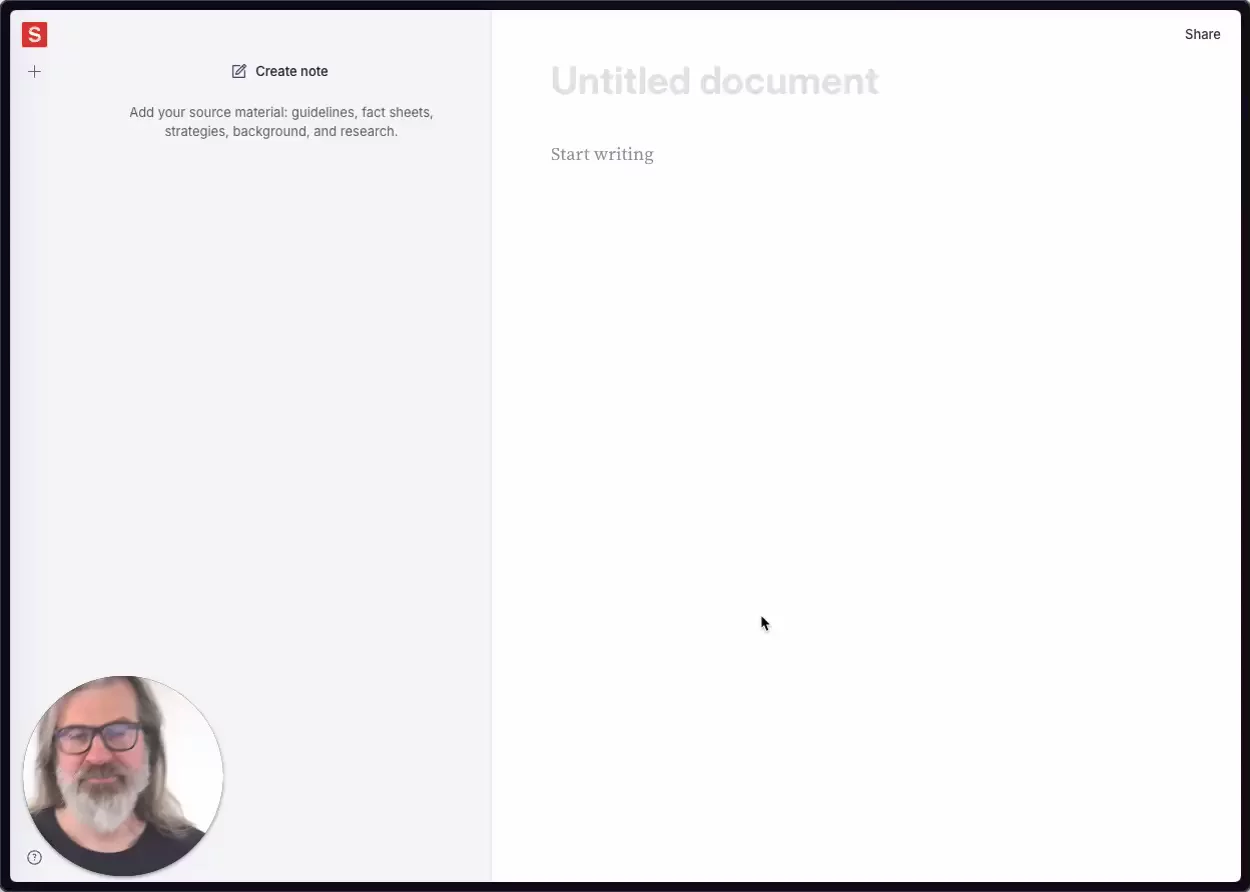How to use AI for translation
Leverage the speed, cost-effectiveness, and accuracy of AI for translation with Sanity Create. Its AI ghostwriter, Notes feature, Blip assistant, and Markdown formatting streamline the translation process, while following best practices ensures optimal results.
Why use AI for translation?
AI offers several advantages for translation. Speed is a major benefit, as it can translate documents significantly faster than a human. It's also cost-effective, reducing the need for expensive human translators. AI can also handle large volumes of text, making it ideal for businesses. Finally, its accuracy, while not perfect, is continually improving, making it a reliable option.
How can Sanity Create help with translation?

Sanity Create, an AI-powered writing assistant, can significantly enhance the translation process through its advanced features. Primarily, the AI ghostwriter in Sanity Create is a powerful tool for translation. It can understand and utilise the context provided through notes, ensuring the translated content is not only fluent and coherent but also relevant to your project. Learn more about AI ghostwriter here.
One of Sanity Create's major highlights is its Notes feature. When it comes to translation, you can use this feature to provide context, facts, style guidelines, and inspiration that can inform and enable the built-in AI co-writer to make relevant and informed translations. You can create, manage, and query notes for quick access to any required information during the translation process. You can learn more about how to use notes here.
Sanity Create also offers a unique feature called Blip, an AI assistant that follows you around the document. It can generate new content or expand on existing ideas, present a range of alternative suggestions, search for relevant notes, and even run selected text as an instruction for more contextually accurate translations. Learn more about how to use Blip here.

Furthermore, by utilising the slash commands and Markdown formatting, you can structure and style your translated content quickly and intuitively. Sanity Create supports a range of formatting options, making it easier to translate content in a readable and visually appealing format.
Lastly, Sanity Create also offers a feature to use the AI assistant within individual notes. This can be useful when you need to translate a particular piece of context without disrupting your main translation flow.
It's important to apply the best practices while using Sanity Create for translation. This includes providing relevant and specific notes, breaking down complex topics into smaller sections, reviewing and editing the translation by adding your own insights and perspective, and experimenting with different prompts and note combinations to find what works best for your translation needs.
5 top tips for using Sanity Create for translation
Make use of notes: The Notes feature is your friend when it comes to translation. Use this to provide context, facts, and style guidelines that will help the AI co-writer make relevant and informed translations. The more specific and relevant your notes, the better the translation.
Utilize the AI Ghostwriter: Make the most of the AI Ghostwriter feature to generate translations that are not only accurate but also relevant and coherent. This feature understands and utilizes the context provided through notes, ensuring the translated content is fluent and coherent.
Use the Blip assistant: The Blip assistant can be incredibly helpful during the translation process. It can provide alternative suggestions, search for relevant notes, and even run selected text as an instruction for more contextually accurate translations.
Format with slash commands and Markdown: Using slash commands and Markdown formatting can help you structure and style your translated content quickly and intuitively. This can make the translation process more efficient and the final output more readable and visually appealing.
Follow the best practices: Always follow best practices while using Sanity Create for translation. This includes reviewing and editing the translation, adding your own insights and perspective, and experimenting with different prompts and note combinations to find what works best for your translation needs.





